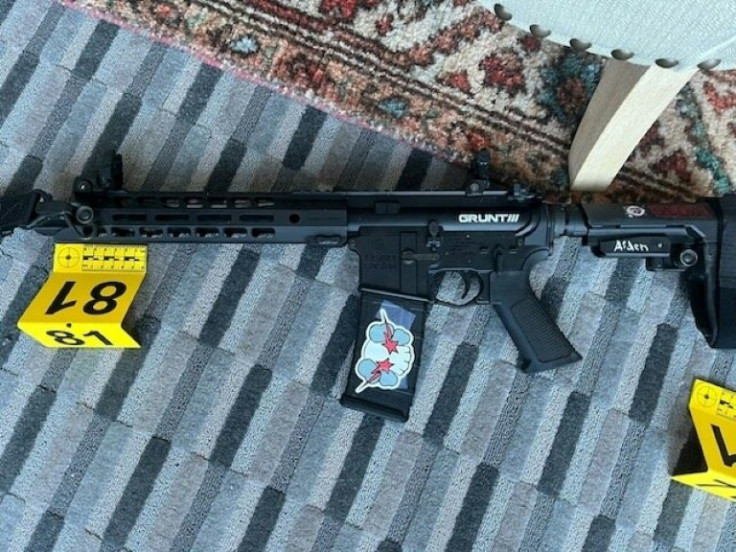In A Country Awash With Guns, How Americans Try To Keep Students Safe

As the fallout from yet another school shooting ripples through the United States, Americans are once again debating ways to keep their children safe.
Here is a look at some of the options being discussed after Monday's massacre at the Covenant School in Nashville, Tennessee, from gun control proposals to armored safe rooms on school grounds.
The shooter -- who killed six people, three of them children, at the small Christian academy -- had seven firearms, all legally purchased.
Two assault rifles and a handgun were used during rampage, police have said.
For some, this confirms the need to ban assault rifles -- weapons of war designed to cause maximum casualties which are often used in mass shootings.
President Joe Biden, a Democrat who has long advocated for such a ban, on Monday repeated his well-worn call for Congress to pass legislation without delay.
In Nashville, his words resonated with some. "I carry a gun with me most days, but I don't need an assault rifle," Chad Baker, 44, told AFP as he visited a makeshift memorial for the victims.
But with the lower house of Congress, the House of Representatives, in Republican hands, the call has so far fallen on deaf ears. Republicans largely maintain that any gun control is a violation of the constitutional right to bear arms.
Since they can't put the brakes on the proliferation of firearms -- there are more than 400 million in circulation in the United States -- many schools are instead tightening their security.
According to the National Center for Educational Statistics (NCES), 97 percent of schools already control access to their buildings, and 57 percent to their grounds.
But, as the massacres continue, some are fortifying their campuses. A study reported on by the New York Times last year showed schools are spending billions of dollars each year to increase security against mass shootings.
Metal detectors are increasingly popular. Nearly 15 percent of high schools and 10 percent of middle schools are equipped with them, according to the NCES.
And each tragedy begets more: after a six-year-old shot his teacher in Virginia in January, school authorities in Newport News county decided to fit all their schools with them.
More than 90 percent of schools have installed surveillance cameras, while others have sophisticated alarm systems.
Some schools in Arkansas and Alabama have even begun installing armored "safe rooms" where students can take cover in case of either tornadoes or gunfire.
Experts and parents have long debated the effect such security measures have on children.
Stacie Wilford, a 41-year-old nurse whose daughter attends school not far from where the Nashville shooting took place, said that on Monday the institution emailed all parents informing them that classroom doors will now be locked during classes.
"She said, 'Mommy I'm going to be afraid to go to the bathroom at my school,'" Wilford told AFP of her daughter. "So, it's a lot."
With each new attack on children, some gun advocates push the highly controversial suggestion that school staff to be armed, arguing that it presents a deterrent.
Chuck Chadwick, a security executive in Texas, lamented on CBS that the Nashville academy, like most private schools, did not have an armed guard.
"It's like the board doesn't want any guns on campus and that's great until something happens," he said.
Tennessee Republican Senator Marsha Blackburn wanted to recruit retired military and police officers and deploy them to schools across the country.
The gun lobby Gun Owners of America went further: "Armed teachers are a 100 percent effective deterrent!" it said after the Nashville killings.
Florida passed a bill in 2019 allowing its teachers to carry guns in classrooms, after yet another massacre the year before.
Those against such a move have long warned that it places an undue burden on teachers, that having more guns on campus increases the risk of someone getting hurt, and that there is no guarantee that the move would stop would-be shooters.
© Copyright AFP 2024. All rights reserved.





















